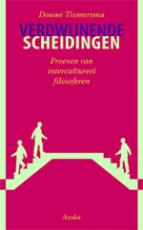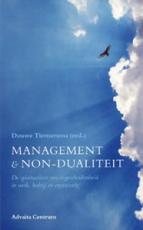Advaita Post 09-14 - Relationships are the most natural thing there is...

Year No. 9 14 (September 22, 2008)
--Relationships are the most natural thing there is, because there are no real separations---

The text below is the first half of an interview in InZicht about the nature and the practical aspects of relationships.
Relationships
Interview InZicht 10. No. 3 (September 2008) with Douwe Tiemersma by Pia de Blok - Part 1
Almost everyone is looking for a relationship in which the experience of unity is one hundred percent. But that seems to rarely or never come about.
Yes, everybody is looking for complete unity. Seemingly there is a lack and the feeling that this lack must be fulfilled. When there is some bit of unity that is experienced, there is joy. People seek the infinite joyful unity.
The problem is that people want unity, but do not want to surrender themselves to it. They want unity, without losing their own personal form. They want full love, but they immediately restrict it. By definition that can’t be and that creates a great conflict. That’s the tragedy of people.
Loneliness. Isn’t that the essence of the primary need for a relationship?
Loneliness is being separated. People try to resolve the problem of loneliness by coming into contact with others. That’s the correct way. There is then a broadening of the individual sphere, an overlap with that of the others.
But it’s clear: when the sense of separation does not completely disappear, loneliness remains. Merging with others occurs up to a certain point. People are defined as social beings, they are in-relationship. But with this definition, the tragedy is created. 'Relationship' is always a connection between two separated unities. They certainly have a connection, but there remains the lack of unity. This loss is seen as a general human condition and so incorporated into philosophy. “You have to have a partial separation because otherwise the human condition disappears.”
In the previous proposition, the difference between levels was not noticed. Unity should be able to exist at the level of the “I” person and yet it does not seem possible. So there is, next to a small bit of unity, separation. But unity has always been at the level of being-self-being and that unity is not damaged by the dualistic experience of the “I”-person. Rather, that (“I”-person) position is merely a reflection of a limited and fragmented perspective, from a limited and fragmented self-being. Returning to your own self-being brings a completely open perspective, within which there are no separations with others anymore. Those view points must not be mixed with one another, otherwise there is confusion and suffering.
Desire for unity
Can dependency be a problem in a teacher/pupil relationship, in male/female relationships and friendships? When someone hangs on too long what do you say to him or her?
Dependency limits your self-being even further on the ego-level than it already is. It delivers a bit of your ego-self over to another ego. Of course, they are projections, but they work restrictively in the experience.
There is frequently a resistance to dependence and a search for or defense of independence and that is correct. In the area of personal relationships there should already be an autonomy of the individuals, for good relations can emerge only from in-dependence. In growing up, a child must first become a confident individual, otherwise there remains an unconscious symbiosis and dependence.
At the level of consciousness, it can become clear that consciousness-self-being is always independent, irrespective of who or what. If independence is sought on the level of the limited individual through an increased assertiveness, then there are problems. Which disappear by returning to self-being.
Referring to the self-being will always be the instructions of a good teacher. Of course, he can do nothing other than begin from an existing situation. If a bit of dependence remains in the pupil, the teacher will show him real independence and unity.
These beginning questions are very fundamental. They are questions about relationships on the everyday human level. On the one hand people think to be independent and on the other there is the absence of and desire for unity. That’s where the dependence comes in. But as one returns to one's self, it’s clear that the infinite desire relates to the always present being-self-being that is not constrained by the separations which appear to exist on a practical level.
In relationships that end, one of the parties may sometimes withdraw from the other. You often see that then the other continues to hold on. That's constricting for both.
You can see it very practically. It has a constricting action, so it's not wise. But in a larger sense it is understandable, because there remains the desire for the wider atmosphere that was experienced when the relationship was still good. That’s the desire for unity.
It would be great if the other person knew it too.
That’s the point. People with relationship problems have to work with both the practical and the fundamental situation. The real solution can only come from the highest perspective. The relationship problem is only lifted through the fundamental insight of non-duality, how the situation may develop.
Broadening
Communications. Sometimes it's better not to discuss things, because frequently it all resolves itself anyway. On the other hand, long withheld frustrations can explode like a bomb. So: talk or not?
This is a practical question. If you let yourself be guided by a loving attitude, then in practice you will find a form that best suits a particular situation. The best is when there arises as much clarity as possible without finishing the relationship. Then of course it’s good sometimes for something to be said.
But then the one who speaks "is happy in his own skin”.
You often see that there is not a loving attitude and then heads hit against one another. In a particular situation you must remain very clear to see what is possible and what is not possible.
People seem to seek out limits in a relationship.
That has to do with the search for true unity and the real desire for that experience. And yes, if they search for it on the level of the “I”- person, then limits will be experienced.
Why do people have relationships?
On the level of duality you have both the feeling of separation and the desire for it to be lifted. You can also view it from the experience of non-duality and then you say “Yes, of course, it’s the most natural thing that is. There are no separations.”
Is it very important that the levels aren’t met through one another?
Yes, that is the core issue in all the questions that emerge.
Jealousy is often present in a relationship.
If you find that the experienced unity is reduced because the other person expands his own sphere towards another person, such as with a hug, then you feel yourself to be outside of that and your own sphere to be limited. Then you feel the separation, the loneliness and the dependency more strongly. This creates jealousy.
Is it also a competitive battle? Everyone must go but you must stay? Or fear, everyone can stay and you must go?
From the “I”-position there is that genuine desire for unity. From the “I”-position it is interpreted as “I have my interests and I would like to expand them, I also want to have the space of the other.” When someone else arrives who the other also finds to be nice, you get an immediate conflict: “The expansion which I want is now restricted.”
A kind of territory.
Exactly. Naturally, you have your own existence as a domain of living. Energetic, sensory, and that can be very limited. In a relationship with someone else you get an increase of that domain and that is perceived as very positive. The other can also experience that and then you feel: together we have a much wider sphere, within which we can be more relaxed than in that separated individual sphere. Therefore people look for relationships from out of their own loneliness. That is a whole dynamic and you can see it on energetic and spatial levels. Energy is expanding, contracting, trimming back, separating and healing.
All expansion gives joy and everyone finds it beautiful. A throw back to a limited self-being is experienced negatively. So you have the whole dynamic there when a third person enters the game and your territory becomes even more limited.
Er is geen tweeheid
als je ontspannen bent
in zelf-bewustzijn
is dat duidelijk.
Boeken
Douwe schreef en redigeerde gedurende zijn leven boeken. Via onze uitgeverij zijn deze nog verkrijgbaar.



